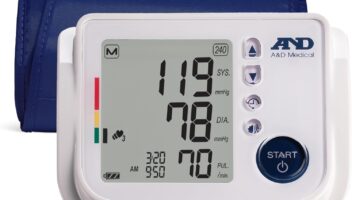Navigating Anxiety with Mindfulness: A Soothing Path to Peace
Anxiety can feel like a relentless storm, but mindfulness provides a calm harbor. I remember my first bout with anxiety—a pounding heartbeat, sweaty palms, a feeling that the world was closing in on me. It was my mind spiraling into a cycle of worry and dread. That’s when a friend recommended mindfulness. I was skeptical, but the idea of finding peace in the present moment intrigued me.
Understanding Mindfulness for Anxiety
Mindfulness is the practice of staying present in the moment, acknowledging thoughts and feelings without judgment. Instead of being swept away in a sea of "what-ifs," it anchors you in the now. This can be particularly beneficial for those battling anxiety, as it helps break the cycle of anxious thoughts.
The Science Behind Mindfulness
Studies indicate mindfulness reduces stress and improves mental health. According to research, mindfulness can:
- Decrease the production of cortisol, the stress hormone.
- Enhance the activity in areas of the brain associated with emotional regulation.
- Improve overall focus and cognitive function.
Practical Tips for Practicing Mindfulness
Starting a mindfulness routine doesn’t require much—just a few minutes a day and a willingness to slow down.
1. Breathing Exercises
Deep, mindful breathing can help ground you. Try this simple exercise:
- Sit comfortably with your eyes closed.
- Inhale deeply through your nose for a count of four.
- Hold your breath for a count of four.
- Exhale slowly through your mouth for a count of six.
Repeat until you feel your body relaxing.
2. Body Scan Meditation
This technique involves mentally scanning your body for tension.
- Lie down comfortably.
- Close your eyes and take a few deep breaths.
- Slowly direct your attention to different parts of your body, starting from your toes and working your way up to your head.
- Notice any tension or discomfort and breathe into those areas.
3. Mindful Observation
This exercise helps you focus on the present by observing your surroundings.
- Spend a few minutes paying close attention to something in your environment.
- It could be the intricate details of a leaf, the sounds around you, or even the feel of the air on your skin.
Notice every small detail without letting your mind wander.
The Role of Online Therapy in Mindfulness
Combining mindfulness with online therapy can provide substantial benefits. Through therapy, you can:
- Get personalized guidance on mindfulness practices.
- Learn cognitive-behavioral techniques to manage anxiety.
- Receive support and encouragement from a licensed professional.
If you’re curious about how online therapy can help you in your journey with anxiety, I recommend checking out this excellent resource on online therapy for anxiety. Don’t hesitate to take that first step toward a more peaceful mind.
Personal Experience with Mindfulness
I discovered mindfulness during a particularly stressful period in my life. At first, it was difficult to silence my racing thoughts. But over time, I learned to embrace those thoughts without letting them control me.
I remember one particularly anxious day. I decided to practice a body scan meditation. As I lay there, I could feel my body gradually unwinding. The tension in my shoulders melted away, and my heartbeat slowed down. It was a small but significant victory—a reminder that I could find peace even in the midst of chaos.
Benefits of Mindfulness for Anxiety
Practicing mindfulness offers a myriad of benefits for those dealing with anxiety:
- Reduces Stress: Mindfulness helps lower cortisol levels, reducing overall stress.
- Improves Focus: Being present increases your ability to concentrate on tasks.
- Enhances Emotional Regulation: It empowers you to manage your emotions more effectively.
- Boosts Mental Clarity: It clears the mental fog that often accompanies anxiety.
Chart: Mindfulness Benefits for Anxiety
| Benefit | Description |
|---|---|
| Reduces Stress | Lowers cortisol levels and mitigates stress |
| Improves Focus | Enhances ability to concentrate and focus |
| Enhances Emotional Regulation | Equips better management of emotions |
| Boosts Mental Clarity | Reduces mental fog and improves clarity |
Frequently Asked Questions
1. How long does it take to see the benefits of mindfulness?
The effects of mindfulness can vary from person to person, but many start to notice improvements within a few weeks of consistent practice.
2. Can online therapy be as effective as in-person therapy for anxiety?
Yes, online therapy can be just as effective, providing flexibility and accessibility, particularly when combined with mindfulness techniques.
3. What if I find it hard to stay focused during mindfulness exercises?
It’s normal to struggle with focus initially. Start with short sessions and gradually increase the time. Remember, the goal is not to silence your mind but to gently bring your attention back to the present.
Embrace Mindfulness and Break Free from Anxiety
Mindfulness is not a quick fix, but a lifelong journey. It’s about changing your relationship with your thoughts and emotions. When paired with online therapy, the benefits can be transformative. Take a step today towards a calmer, more present life. It’s within your reach, one mindful breath at a time.
Feel free to drop your feedback or share your own experiences with mindfulness in the comments below. How has it helped you navigate anxiety? 😊
Disclosure:
Hospitals.net is a participant in the Amazon Services LLC Associates Program, an affiliate advertising program designed to provide a means for sites to earn advertising fees by advertising and linking to Amazon.com, .ca, .co.uk, etc.
AI Disclaimer:
Hospitals.net uses artificial intelligence (AI) tools to assist in gathering and summarizing product information, including reviews and other relevant data for Amazon products and services. While we strive to ensure the accuracy of the information provided, AI-generated content may not always reflect the most up-to-date or accurate details. The information on our site should not be considered professional advice, and users are encouraged to verify any product details directly with Amazon or other official sources before making a purchase.
We do not guarantee the completeness or accuracy of the AI-generated content and are not liable for any discrepancies or errors. Any reliance on the information provided is at the user’s own risk. By using this site, you acknowledge that product availability, pricing, and other details may change over time, and Hospitals.net is not responsible for these changes.
Health Disclaimer:
The health products and information provided on Hospitals.net are for informational purposes only and are not intended to substitute professional medical advice, diagnosis, or treatment. Always consult a qualified healthcare provider or medical professional before using any health products or following any advice you find on this site. The content on Hospitals.net, including product recommendations and reviews, is not a substitute for individualized care from a healthcare provider.
We make no warranties or representations regarding the effectiveness, quality, or safety of the products listed on our site. Any use of these products is solely at your own risk. Hospitals.net is not liable for any harm, injury, or adverse effects that may result from the use or misuse of the health products or information provided.
Please read all product labels, warnings, and directions provided by the manufacturer before using any product. If you have any questions about a product or its suitability for your condition, we recommend contacting the manufacturer directly or consulting a healthcare professional.
If you have any concerns regarding the accuracy of the information on this site, please contact us for further clarification.



